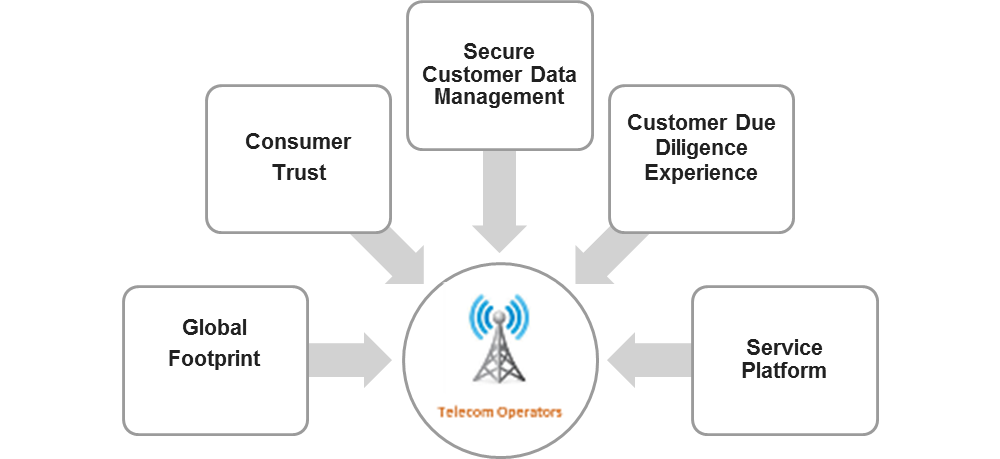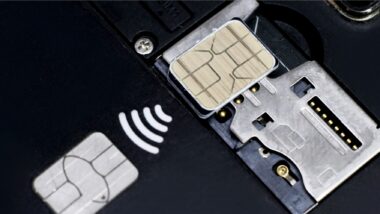
With more than 5 billion subscribers empowered digitally via their mobile device, not only to communicate and access data, but also to transact, the next big challenge to ensure the success of the digital economy relies on knowing who you transact with. Without this building trust is impossible.
As we discussed in 7 reasons why Mobile is the future of Digital ID, the mobile ecosystem has created a digital platform that is connected to everyone; and everywhere consumers are connected, it’s possible to unlock a wide range of digital services. As a result, mobile identity will become the new currency of this digital economy and the market is growing. According to OWI – One Wold Identity, the mobile identity opportunity will be worth $34 billion by 2022, while Fuel by McKinsey estimates that the current market for identity-verification-as-a-service market is worth $10 billion now and will grow to $16-20 billion by 2022.
In this exciting market, there are plenty of emerging opportunities, and with them new problems in need of a solution. Mobile Network Operators hold the keys to thrive and enable trusted digital identities, in five key pillars:

Let’s look at each one in turn.
-
Global Footprint
World Bank estimates that more than 1.1 billion individuals do not have official proof of their identity. There is a race to put systems in place to ensure that these people are protected and not left out of society or services.
Furthermore, some countries such as Nigeria, Zambia and Zimbabwe have more people with a mobile subscription than an official proof of identity. In developing countries as India, 80% of all people use the internet via their mobile phones and similar figures exist in countries such as Kenya or Pakistan.
This represents a huge opportunity to work with MNOs that have the ability to accelerate the reach and deployment of digital identities to empower citizens. They can enable sustainable, scalable and cost-effective mobile digital identity solutions while ensuring a large marketplace of consumers, which is essential for critical mass.
-
Consumer Trust
In this new world, consumer trust is an important asset. MNOs have a close relationship with their customers and possess a large amount of data attributes used to enable specific services. They know which type of account you have (prepaid or post-paid), what device you have, your location information and device usage records. All this information can be combined to accurately identify a specific user, ensure secure transactions and reduce identity theft.
This unique link via mobile represents a huge step from what we do online. The combination of this set of individual attributes can then be used to allow the holder to gain access to services or resources, either in the real world or online. The attribute ecosystem can be built on top of an authentication solution, which will provide many further topics of discussion (which we’ll come back to in future blog posts!).
-
Secure customer data management
MNO footprints and customer trust converge in a complex ecosystem with a high requirement of data protection. As a result, these MNOs have invested in extensive customer resource management (CRM) capabilities.
Telecom Operators understand and have put these systems in place to manage the preferences and permissions of the consumer, thereby placing them in control of their personal data and building strong trust. Their move to a digital identity market can ensure a stable ecosystem while ensuring data protection.
-
Customer due diligence experience
In most countries, telco operators have well-established processes for identity checking and proofing through both their online credit-checking procedures and their physical stores.
On the other hand, mobile devices also tend to be highly regulated. Across the globe, many governments mandate SIM card registration and require some to carry out registration of all their subscribers.
There are now 147 countries where SIM registration policies are in place; in this group, 11% (including Bangladesh, Pakistan and Bahrain) enable MNOs to validate customer identification against a central government database, and 7% (including Nigeria, India, Thailand and Peru) require it to use biometrics.
This provides MNOs with an opportunity to become a source of trusted verified digital identities, by ensuring that online and offline service providers, as well as retailers, can be sure about the identity of the individual wanting to access their service.
-
Service Platform
Telcos are already providing a wide range of services to their users and have established payment capabilities to monetize commercial opportunities. This services platform can be extended to other services such as mHealth, mEducation, financial services and social protections, the sharing economy and others.
These digital services are becoming mainstream; for example, 92 countries have already deployed financial services from 277 live mobile money services, and it doesn’t stop there. Other successes have been seen elsewhere, such as SKT announcing that its identity solution has been adopted by 99% of Korean websites, generating a $40 Million annual revenue.
With these points all in mind, it’s clear that mobile identity will become a central and critical part of the digital ecosystem if it’s to remain secure. To make this happen, we are now seeing the industry collaborate and form consortiums as MNOs, banks, and other industry actors work with governments to define the ecosystem.
And as we look ahead to implementation, we can expect a rise in the use of operator-led solutions to enable end user adoption and to reach critical mass. Different markets are demonstrating the enormous potential and we are expecting incredible improvements in the coming years.
The question is now: are you ready for it? Let us know, by tweeting to us @Gemalto.
And if you want more information, read our whitepaper: From necessity to opportunity: How Mobile Network Operators stand to benefit from trusted digital IDs.


